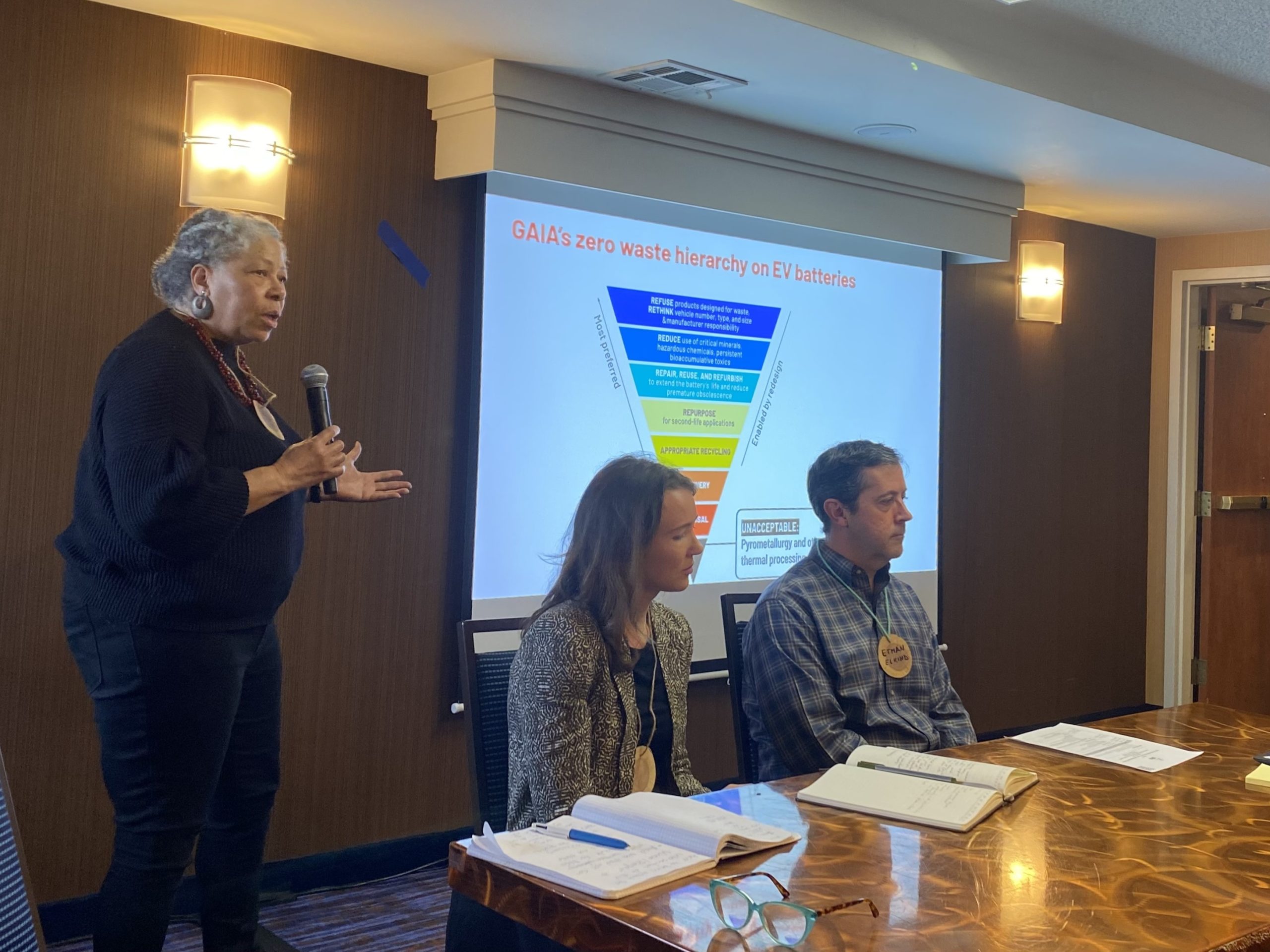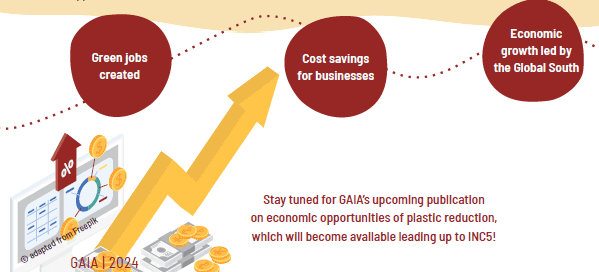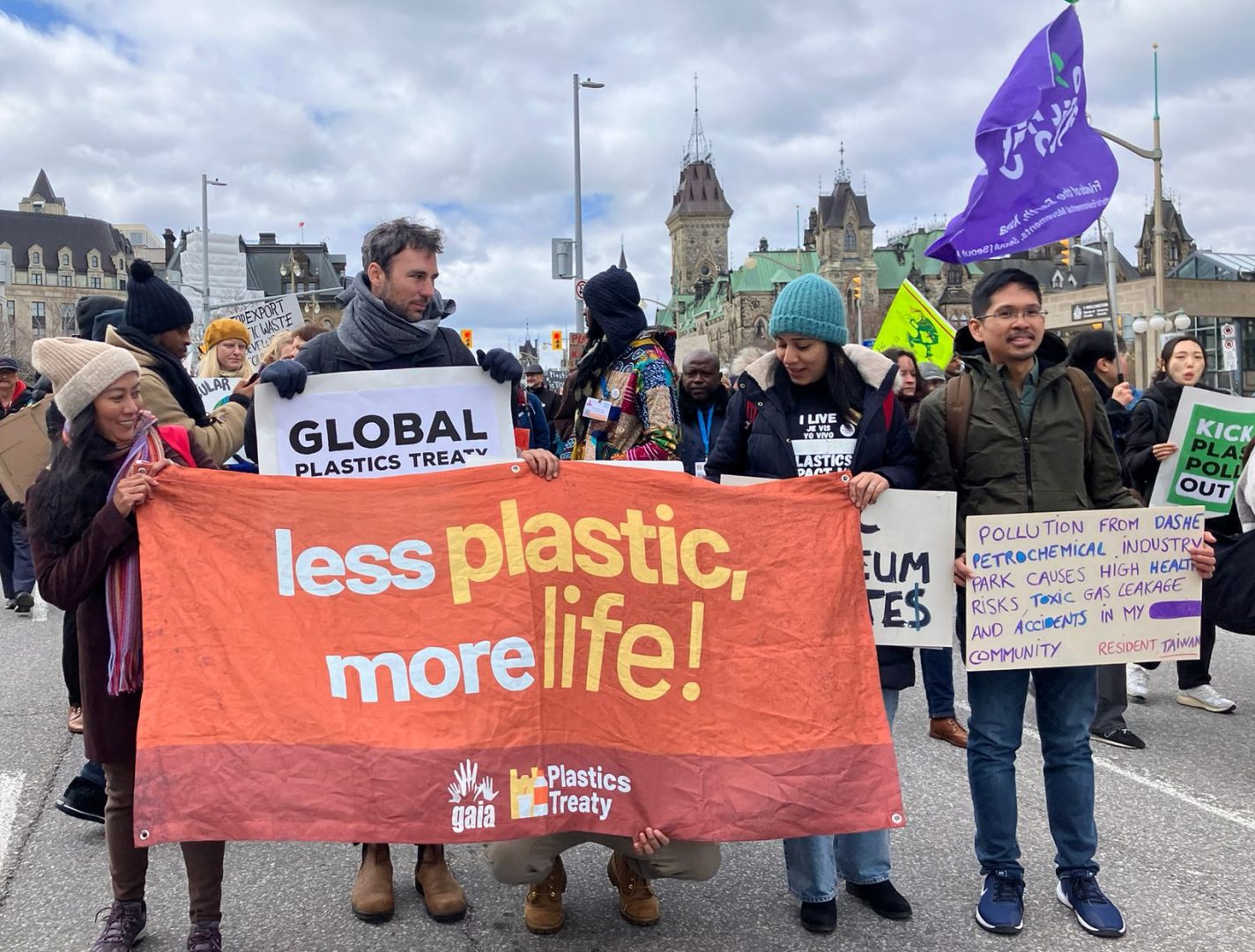
En una reciente investigación de organizaciones miembro de GAIA en México, Ecuador, Argentina y Chile, se alertó que en 2020, en plena pandemia, las exportaciones de residuos plásticos desde Estados Unidos hacia algunos países de América Latina aumentaron en más del 100%.
Por eso, las organizaciones que conforman la Alianza Global por Alternativas a la Incineración (GAIA) en América Latina y el Caribe declaran su rechazo y estado de alerta ante esta amenaza, que convierte a nuestra región en un destino emergente de la basura plástica mundial luego de que China detuviera en 2018 ese tipo de importaciones para proteger su territorio de la contaminación.
A escala mundial, existe una creciente preocupación sobre el envío de residuos plásticos desde potencias como Estados Unidos, el mayor exportador de residuos plásticos, hacia naciones con débiles legislaciones y controles. Ante esta situación, vemos con preocupación que:
- Según la base de datos de libre comercio internacional de Estados Unidos, USA Trade Online, entre enero y agosto de 2020 llegaron 44.173 toneladas de desechos plásticos procedentes de Estados Unidos a 15 países latinoamericanos. Eso significó el envío de aproximadamente 35 contenedores diarios a la región con estos materiales.
- Pese a las normativas y a las iniciales acciones gubernamentales, en los países investigados aún se desconoce el estado en que ingresan, a través de puertos y fronteras, miles de toneladas de desechos plásticos cuyo principal origen es Estados Unidos, que además no es parte firmante del Convenio de Basilea.
- Actualmente, el comercio de residuos plásticos se realiza a través de partidas, subpartidas y fracciones arancelarias amplias y ambiguas, que no permiten el seguimiento de estos materiales hasta su uso final. Por las experiencias de países asiáticos, existe amplia evidencia de que estos desechos llegan contaminados o son difíciles de reciclar, lo cual causa un impacto en los países receptores.
- GAIA no es la única organización que ha observado con preocupación el aumento de los flujos de desechos plásticos hacia la región. Un informe de Interpol de 2020, alertó que el sector del reciclaje está creciendo en América Latina, con inversores chinos que han mostrado su interés en nuestro continente para instalar sus fábricas debido al acceso a mano de obra barata y la cercanía con Estados Unidos.
- México, El Salvador y Ecuador son los principales importadores de desechos plásticos en la región. Solo entre enero y agosto de 2020, llegaron 32.650 toneladas a México; 4.054 toneladas a El Salvador; y 3.665 toneladas a Ecuador, según los datos recopilados por The Last Beach Cleanup.
Alertamos que estamos ante un peligro inminente de contaminación de la naturaleza y vulneración de los derechos de las comunidades de vivir en un ambiente seguro para su salud y la de sus territorios. Asimismo, representantes de distintas organizaciones han manifestado su adhesión y preocupación indicando:
“El comercio transfronterizo de desechos plásticos es quizás una de las expresiones más nefastas de la mercantilización de los bienes comunes y de la ocupación colonial de los territorios del sur geopolítico para convertirlos en zonas de sacrificio. América Latina y el Caribe no somos el patio trasero de los Estados Unidos, somos territorios soberanos y exigimos el cumplimiento de los derechos de la Naturaleza y de nuestros pueblos” – Fernanda Soliz, directora área de salud, Universidad Simón Bolívar, Ecuador.
“Que Estados Unidos no haga nada para que las empresas dejen de exportar residuos plásticos a América Latina y el Caribe, así como a todo el Sur Global, es irresponsable e inmoral. En vez de aplicar en su país las medidas adecuadas de reducción, Estados Unidos está perpetrando un colonialismo de residuos al depositar esta contaminación tóxica en otros países. Solidarizamos con nuestros socios y aliados latinoamericanos que les están exigiendo a sus gobiernos que dejen de aceptar las importaciones de residuos, y exigimos al gobierno de EE.UU. que se responsabilice de encontrar soluciones reales y equitativas a la crisis de la contaminación por plástico.” – Melissa Aguayo, Coordinadora, Break Free From Plastic, Estados Unidos.
El problema de la contaminación por plástico no es sólo una cuestión de acumulación de residuos, es también un problema de justicia medioambiental y un factor que alimenta nuestra crisis climática. Este informe muestra que las desigualdades y los daños causados por la contaminación plástica no tienen fronteras y, en última instancia, perjudican a las comunidades de color. Nuestras comunidades latinxs en Estados Unidos y en los países latinoamericanos, viven esta contaminación todos los días, desde la extracción hasta la incineración. Este informe realmente pone de manifiesto que no existe tal cosa como “lejos” – y que tenemos que empezar a abordar el problema de la contaminación con soluciones concretas.” – Mariana Del Valle – GreenLatinos
Las organizaciones firmantes exigimos con urgencia que :
- Los países de América Latina y el Caribe adapten sus legislaciones para aplicar el Convenio de Basilea (del que todos son suscriptores, menos Haití) y su Enmienda de Plásticos.
- Las autoridades transparenten la información respecto a las importaciones de residuos plásticos y reforzar sus controles.
- Deben existir registros aduaneros que permitan saber con exactitud el tipo y el estado de los desechos plásticos que ingresan a los puertos latinoamericanos.
- La protección de nuestro territorio y sus comunidades sean prioritarios ante acuerdos bilaterales o multilaterales como tratados de libre comercio que podrían abrir puertas al ingreso de desechos plásticos.
Estamos ante una crisis de los residuos que muestra que para alcanzar el éxito en los esfuerzos hacia una gestión de residuos realmente sustentable, se deben priorizar políticas de reducción, y en segundo término asegurar la reutilización y reciclabilidad de los envases, asegurando que su reciclaje se realice en sitios cercanos a donde se generan. Rechazamos tajantemente que las altas cifras de reciclaje que muestran los países ricos sean a costa de convertir nuestro continente en un basurero.
Adhieren:
Acción Ecológica, Ecuador
Acción Ecológica y Academia Mexicana de Derecho Ambiental
Agrupación Aitué de Huillinco, Chile
Alianza Basura Cero Chile
Arnika, República Checa.
Asociación Ecológica Santo Tomás, México.
Ban SUP (Single Use Plastic), Estados Unidos.
C-CUBED, Nigeria
CAAN Glens Falls, Estados Unidos.
Cafeteria Culture, Estados Unidos.
Climate Reality Project Philippines, Filipinas
Colectivo VientoSur, Chile.
Community Research, Estados Unidos.
CREPD, Camerún.
CT Coalition for EJ, Estados Unidos.
Digital Data Standards LLC, Estados Unidos.
East Yard Communities for Environmental Justice, Estados Unidos.
Ecoton, Estados Unidos.
Ecoviable, Colombia.
Evestico Ltd, Reino Unido.
FoCo Trash Mob, Estados Unidos.
Fronteras Comunes, México.
Fundación Basura, Chile,
Fundación El Árbol, Chile.
Fundación Lenga, Chile.
Galena Green Team, Estados Unidos.
Gili Eco Trust, Indonesia.
Greenpeace Finlandia.
Health and Environment Justice Support (HEJSupport), internacional.
Humusz Waste Prevention Allience, Hungría.
ICA Agro SpA, Chile.
INTA, Argentina.
JA!Justica Ambiental, Mozambique.
Just Goods, Estados Unidos.
KY Environmental Foundation, Estados Unidos.
Local Futures, Estados Unidos.
Love Plant Nourish by Ike & Eli’s Organic Farm, LLC , Estados Unidos.
Mingas por el mar, Ecuador.
Missouri River Bird Observatory, Estados Unidos.
MN BIPOC Environmental Justice Table, Estados Unidos.
Nipe Fagio, Tanzania.
PCC Environmental Club, Trinidad y Tobago.
Plastic Free Society, Francia.
Plastic Oceans International
Plastic Pollution Coalition, Estados Unidos.
Plataforma Antiincineración de Montcada, España.
Public Environmental Centre for Sustainable Development, Bulgaria.
Purge Plastic, Reino Unido.
Red de Acción por los Derechos Ambientales RADA, Chile.
SAISOCA, Venezuela.
Sea Hugger, Estados Unidos.
Six Senses Hotels Resorts Spas, Tailandia.
StopPlastics, Canadá.
Sustainable Environment Development Initiative, Nigeria.
Sustainable Mill Valley, Estados Unidos.
Taller de Comunicación Ambiental (Rosario), Argentina.
Taller Ecologista, Argentina.
TECHshare – Technik, Bildung, Solidarität, Suiza.
The Last Beach Cleanup, Estados Unidos.
The Last Plastic Straw, Estados Unidos.
The Ocean Project, Estados Unidos.
UANL, México.
UDD, Chile.
Universidad Santo Tomás, Colombia.
UUFHCT, Estados Unidos.
VMCH, Australia.
WasteLess, India.
Whole Vashon Project, Estados Unidos.
Wonderfil, Estados Unidos.
Zero Waste Association of South Africa, Sudáfrica.
Zero Waste Lab Portugal.






























 Este movimiento es parte de una nueva tendencia que se originó en 2018 después de que China restringiera esas importaciones. En ese año, la potencia asiática cerró las puertas a los desechos plásticos de Estados Unidos, que llegaban sucios o eran difíciles de reciclar, lo cual generaba mayor contaminación en su territorio.
Este movimiento es parte de una nueva tendencia que se originó en 2018 después de que China restringiera esas importaciones. En ese año, la potencia asiática cerró las puertas a los desechos plásticos de Estados Unidos, que llegaban sucios o eran difíciles de reciclar, lo cual generaba mayor contaminación en su territorio. 





